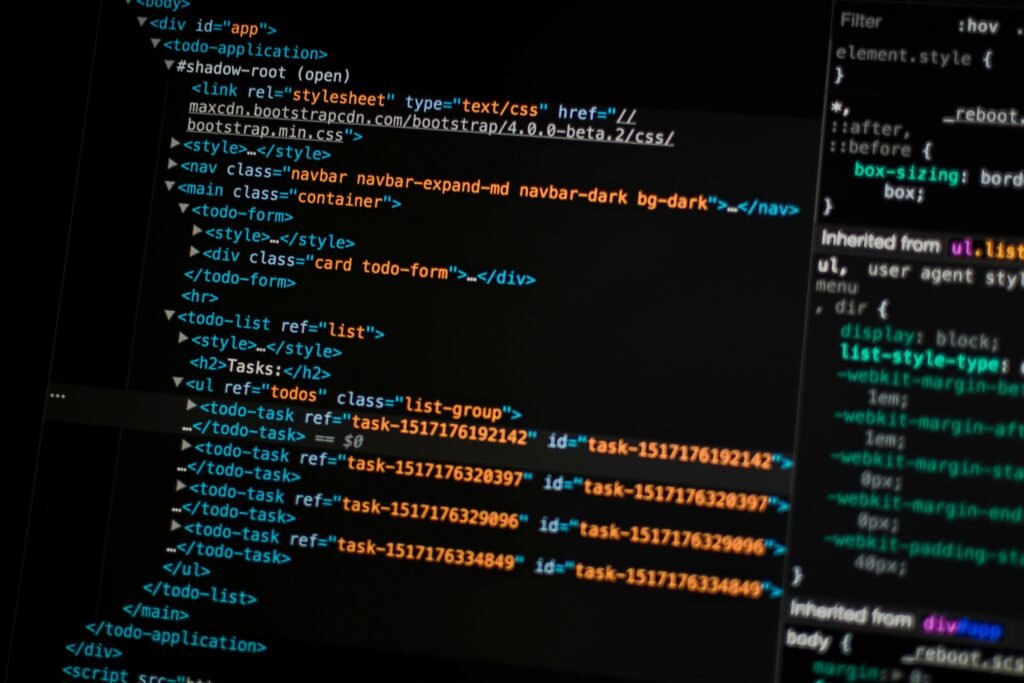
Introduction to Facebook’s Cybersecurity Framework
In today’s digital landscape, the significance of cybersecurity cannot be overstated, especially for social media platforms like Facebook. As one of the largest social networking sites globally, Facebook is a prime target for various cyber threats, including data breaches, phishing attacks, and misinformation campaigns. With over two billion users relying on its services for personal and professional interactions, the platform faces unique challenges in protecting user data and maintaining the trust of its community.
Facebook’s cybersecurity framework is designed to address these challenges comprehensively. It incorporates advanced technologies, innovative policies, and a dedicated team of cybersecurity professionals working tirelessly to defend against malicious activities. This robust framework is built on several core principles, including proactive threat detection, user education, and incident response strategies aimed at minimizing damage in the event of a security breach.
One of the major threats faced by Facebook is the constant evolution of cybercriminal tactics. These nefarious actors employ sophisticated techniques to exploit vulnerabilities within the platform. For instance, phishing attacks utilize deceptive emails or messages to trick users into revealing sensitive information, while malware can infiltrate devices to compromise accounts. Additionally, the rise of misinformation on social media presents a significant challenge, as it can undermine public trust and safety.
To counter these threats, Facebook has implemented an array of security features aimed at protecting user data, such as two-factor authentication, machine learning algorithms, and an ongoing commitment to transparency. Furthermore, the platform engages in partnerships with external security experts and organizations to continuously enhance its security measures. By prioritizing cybersecurity, Facebook aims to create a safer online environment for users while reinforcing its reputation as a responsible leader in the social media sector.
Understanding the Cyber Threat Landscape
The digital landscape is fraught with various cyber threats, which pose significant risks to platforms like Facebook. Understanding these threats is essential for both users and the organization to fortify their defenses effectively. One of the most common threats encountered is phishing attacks, where cybercriminals employ deceptive tactics to trick individuals into revealing sensitive information, such as passwords or financial details. Reports indicate that these attacks have become increasingly sophisticated, targeting not only individual users but also organizational accounts, leading to unauthorized access and potential data exploitation.
Data breaches represent another critical concern within the cybersecurity realm. The impact of such breaches transcends immediate losses and extends to reputational damage and legal ramifications. Facebook has faced its share of data breaches over the years, underscoring the importance of stringent protective measures. Notably, studies show that cyberattacks have affected millions of users, calling attention to the continual evolution of threat vectors. This ongoing threat necessitates adaptive and proactive cybersecurity strategies to mitigate potential harm to users and the platform itself.
Malware also stands as a formidable adversary in Facebook’s cybersecurity endeavors. Various forms of malicious software infiltrate systems, often without users noticing until significant damage has occurred. This malware can be designed to disable security protocols, steal confidential information, or manipulate user activity for nefarious purposes. Unauthorized access attempts are similarly alarming; these efforts may involve exploiting system vulnerabilities to gain access to accounts, often leading to further breaches or identity theft.
Statistics reveal that over a substantial percentage of users encounter some form of cyber threat each year, highlighting the crucial need for robust cybersecurity measures. By remaining vigilant and informed about these threats, users can contribute to a safer environment while supporting Facebook’s ongoing efforts to enhance its security infrastructure.
Key Cybersecurity Technologies Used by Facebook
Facebook, as a leading social media platform, employs a vast array of innovative cybersecurity technologies designed to protect its users’ information and ensure a safe online environment. Among these technologies, machine learning algorithms play a pivotal role in threat detection. By analyzing vast datasets, these algorithms can identify unusual patterns that may signify potential security threats. This proactive approach allows Facebook to respond rapidly to new and evolving cyber threats, minimizing the risk of data breaches and other security incidents.
Additionally, encryption is a fundamental element in Facebook’s cybersecurity strategy. The platform utilizes advanced encryption standards to protect user data both at rest and in transit. This form of data protection is vital in safeguarding sensitive information from unauthorized access, ensuring that user communications remain confidential. By employing robust encryption protocols, Facebook enhances the overall security framework of its services, thereby instilling user confidence in the protection of their personal data.
Moreover, Facebook has implemented advanced authentication methods, including two-factor authentication (2FA) and biometric verification. Two-factor authentication adds an additional layer of security by requiring users to provide a second form of verification, such as a one-time code sent to their mobile device, alongside their password. This approach significantly reduces the risk of unauthorized account access. Furthermore, biometric verification, which may include fingerprint or facial recognition technology, offers a more seamless and secure login experience for users. Collectively, these cybersecurity technologies not only reinforce Facebook’s commitment to safeguarding its users’ information but also illustrate the platform’s dedication to adopting cutting-edge solutions in the face of evolving cyber threats.
The Role of Artificial Intelligence in Cybersecurity
In recent years, the integration of artificial intelligence (AI) into cybersecurity has become a cornerstone in the defense strategies employed by organizations such as Facebook. The ever-evolving threat landscape necessitates advanced methods for analyzing and responding to cyber threats, making AI an invaluable component in safeguarding sensitive user data and enhancing overall platform security.
AI-driven tools leverage machine learning algorithms to continuously monitor and analyze user behavior, identifying patterns that could indicate potential security risks. For example, Facebook employs AI to detect anomalous account activities, such as unusual login locations or excessive messaging, which may suggest unauthorized access. By analyzing these behaviors in real-time, the platform can proactively respond to possible breaches before they escalate, reducing the time between threat detection and response.
Furthermore, AI plays a crucial role in automating incident response processes, streamlining actions that would typically involve human intervention. Automated systems can promptly isolate compromised accounts, notify affected users, and implement additional security measures without significant delays. This rapid response capability minimizes the potential damage from cybersecurity incidents and ensures a smoother user experience.
AI’s effectiveness is also demonstrated through its ability to adapt and learn from past incidents. By analyzing historical data on breaches and threats, AI systems can evolve, enhancing their predictive capabilities. As a result, Facebook’s cybersecurity framework not only becomes more efficient but also prepares for emerging threats by continuously refining its protective measures.
The integration of artificial intelligence into Facebook’s cybersecurity strategies underscores the profound impact of technology in combatting cyber threats. By employing sophisticated AI-driven tools and methodologies, Facebook is better equipped to safeguard its users against the increasing pace and sophistication of cyberattacks.
User Education and Awareness Initiatives
In an effort to bolster cybersecurity, Facebook has launched a series of user education and awareness initiatives designed to inform and empower users regarding online safety. Recognizing that the human element is often the weakest link in digital security, Facebook aims to equip its users with the necessary knowledge to protect their accounts and personal data.
One of the primary components of these initiatives is a comprehensive awareness campaign that disseminates crucial information on recognizing and avoiding potential threats. These campaigns leverage various channels, including social media platforms and in-app notifications, to educate users about the importance of strong passwords, recognizing phishing attempts, and maintaining privacy settings. By consistently delivering safety tips, Facebook ensures that users remain informed and vigilant in the face of evolving cyber threats.
Additionally, Facebook offers an array of resources, including safety guides that provide detailed instructions on how to enhance personal security online. These guides address various topics, from securing accounts with two-factor authentication to understanding the implications of privacy settings. The user-friendly design of these resources allows individuals with varying levels of technical knowledge to easily comprehend and apply best practices in their everyday online interactions.
Moreover, Facebook has developed tools that directly support users in reinforcing their account security. Features such as login alerts and suspicious login detection serve as real-time protective measures, notifying users of any unusual activity on their accounts. By implementing these proactive tools, Facebook not only alerts users about potential security breaches but also encourages them to take immediate action when necessary.
Through these robust education and awareness initiatives, Facebook is committed to fostering a more secure online experience for all its users, thereby creating a strong community dedicated to cybersecurity awareness and prevention.
Collaboration with Law Enforcement and Cybersecurity Experts
In today’s digital landscape, the collaboration between social media platforms like Facebook, law enforcement agencies, and cybersecurity experts plays a pivotal role in addressing the myriad of cyber threats that pose risks to user safety and data integrity. Facebook has established proactive partnerships with various governmental and private entities to enhance its cybersecurity framework and fortify its defenses against malicious activities.
One of the primary avenues of collaboration is through information sharing. Facebook has instituted programs that allow law enforcement agencies to access relevant data regarding ongoing cyber threats and suspicious online activities. By cultivating a transparent communication channel, Facebook encourages timely reporting of cyber incidents, facilitating rapid response actions. The data exchanged between these organizations can illuminate potential threats, allowing for preemptive measures to be undertaken, thus minimizing the impact of cyber attacks.
Joint investigations represent another key aspect of this cooperative model. Facebook often collaborates with law enforcement in cases that involve extensive cybercrime, such as hacking, identity theft, or the distribution of illegal content. These joint efforts not only bolster the investigation process through shared resources and expertise but also help in creating precedents for future cases. By documenting successful cooperative strategies, stakeholders can develop best practices that can be employed to combat evolving threats.
Furthermore, the ongoing dialogue between Facebook, law enforcement, and cybersecurity specialists enables the establishment of comprehensive cybersecurity compliance frameworks. These frameworks emphasize the importance of adopting robust security measures and encourage the development of educational programs aimed at raising awareness about online threats among users and organizations. In combining resources, expertise, and intelligence, Facebook continues to strive towards reinforcing its stature as a fortified digital fortress against cyber threats.
Incident Response and Recovery Protocols
In the realm of cybersecurity, effective incident response and recovery protocols are crucial for mitigating damage during a breach. Facebook has established a comprehensive framework that ensures rapid identification, containment, and eradication of threats, while concurrently working to restore services to users. The initial steps involve detecting unusual patterns and anomalies in system behavior, which are continuously monitored using advanced algorithms and threat intelligence. This proactive approach allows for swift action to be taken before the breach escalates.
Once a breach is detected, Facebook activates its incident response team, composed of cybersecurity experts who specialize in various aspects of digital threats. This team swiftly assesses the scope of the incident, analyzing what data may have been affected and determining the potential risk to users. Post-assessment, containment procedures are implemented to isolate the affected systems and prevent further intrusion or data loss.
Subsequent to containment, the focus shifts to eradication and recovery efforts. The incident response team employs a combination of forensic analyses to understand the breach’s origins and patch any vulnerabilities that were exploited. Following the resolution of these issues, thorough testing assures that services can be restored securely. Communication with affected users also plays a critical role during this phase; users are informed of the incident and the measures taken to safeguard their information, and guidance is provided regarding any necessary actions they should take.
Moreover, Facebook evaluates the incident post-recovery, undertaking a comprehensive review of its protocols to identify improvements. This commitment to continuous enhancement of their incident response protocols ensures a resilient defense against future cyber threats, reinforcing Facebook’s dedication to safeguarding user data.
Continuous Improvement and Future Directions
In the rapidly evolving landscape of technology, continuous improvement in cybersecurity practices is not merely beneficial; it is essential. Facebook acknowledges the dynamic nature of cybersecurity threats, necessitating an adaptive approach. The platform has significantly strengthened its security protocols over the years, employing advanced technologies such as artificial intelligence and machine learning. These technologies enable the timely detection of unusual activity, thereby protecting users against potential threats. Regular evaluation of existing strategies has allowed Facebook to respond effectively to emerging threats, ensuring that the security of its digital ecosystem remains robust.
Moreover, the integration of user feedback into security measures is a key aspect of Facebook’s enhancement strategy. The platform encourages its users to report suspicious activities, which contributes to a participatory security culture. User interaction increases awareness about cybersecurity risks and provides valuable insights into vulnerabilities that may not have been previously identified. By fostering a community-oriented approach, Facebook is not just a passive provider of services, but rather an active participant in cultivating a secure digital environment.
Looking ahead, Facebook envisions several future directions for its cybersecurity strategy. Expanding collaborations with cybersecurity experts and organizations is anticipated to yield innovative solutions tailored to combat sophisticated threats. Furthermore, as digital identities become increasingly important, Facebook aims to enhance identity verification processes. This includes evolving two-factor authentication methods and exploring biometric authentication to bolster user security. The emphasis on user education is also expected to grow, with initiatives aimed at raising awareness about data security and privacy. Ultimately, a commitment to continuous improvement will ensure that Facebook not only meets but exceeds the expectations of its users in terms of cybersecurity strength.
Conclusion: The Importance of Strong Cybersecurity
In the digital age, the need for robust cybersecurity measures has never been more critical, especially for a platform as influential as Facebook. Throughout this exploration of Facebook’s cybersecurity posture, we have observed the intricate layers of security that the company has implemented to safeguard user data. From advanced encryption techniques to proactive threat detection systems, every measure is vital in protecting users from potential cyber threats.
As we have discussed, strong cybersecurity serves a dual purpose: not only does it protect sensitive personal information, but it also fosters user trust. The reliance on social media platforms like Facebook has created a profound interconnectedness among users, making the security of these platforms imperative. Users expect their data to be handled with the utmost care, and any breach can significantly harm not only individual privacy but also the overall reputation of the service. Here, strong cybersecurity practices become essential, as they create a sense of safety and confidence in the platform.
Moreover, it is essential to recognize that cybersecurity is a shared responsibility. While organizations like Facebook must implement rigorous security protocols, individuals also play a crucial role in safeguarding their information. Users should remain vigilant, regularly update their passwords, and be aware of phishing attempts and other common threats. In navigating this interconnected landscape, a proactive approach to cybersecurity can significantly reduce risks and enhance personal safety.
In closing, the discussion surrounding Facebook’s cybersecurity highlights the imperative nature of robust security measures in today’s digital environment. The trust and safety of users hinge on these protocols, encouraging everyone to reflect on their own cybersecurity practices and how they contribute to a safer digital world.



